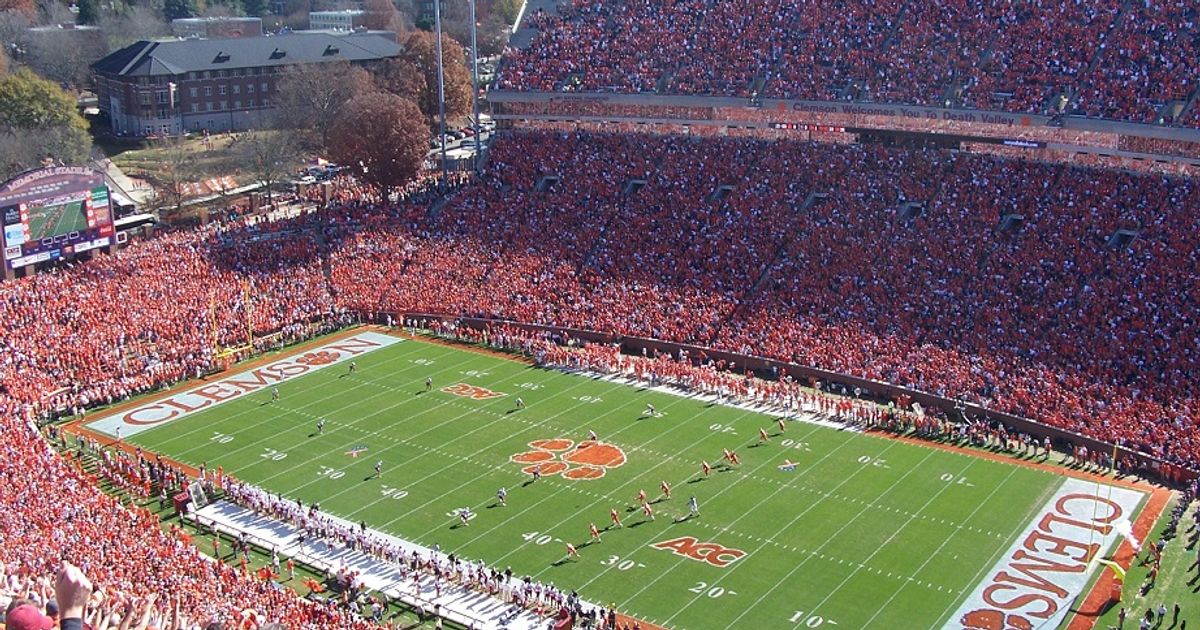Martin Jenkins had a career playing football for Clemson that most fans have probably already forgotten about since his senior season in 2014. He got into 14 games as a sophomore defensive back, accounting for 23 tackles. That was the climax of his on-field career, but the legacy he could leave on the NCAA thanks to a recent legal development could endure forever.
Jenkins is the lead plaintiff in a lawsuit against the NCAA which argues that the NCAA restricting the amount to which its member institutions can compensate their athletes at "full cost of attendance" violates the Sherman Act. For those unfamiliar with that legislation, it's the federal law which defines and provides for regulating illegal trusts.
On Thursday, March 29, US District Judge Claudia Wilken, the same judge who originally presided over O'Bannon v. NCAA, denied a motion by the NCAA to dismiss Jenkins v. NCAA and set a date for the trial of December 3rd.
If wildly successful, and assuming the ruling would survive intact upon appeal(s), it would be illegal for the NCAA to penalize schools for compensating their athletes above and beyond the current NCAA-mandated cap of "full cost of attendance." Schools could still face restraints on their payments to athletes from athletic conferences they are members of, but the NCAA would no longer have any say in the matter.
That's if Jenkins is ultimately successful. Even if Wilkens agrees with the plaintiffs, higher courts may disagree or scale back the effect of her ruling, like what happened in O'Bannon. As the plaintiffs in a civil suit, the burden of proof is on them to prove that the NCAA's policy violates the law. That standard of illegality may prove to be a challenge.
December 3, 2018, is bigger than whether the NCAA's full cost of attendance cap violates the Sherman Act, however. This is the day in the court of public opinion that has been looming large for the NCAA for years.
The Sherman Act regulates economics in the United States so that science will be at the center of arguments for both sides. In a capitalist society, one of the most fundamental elements is the freedom of individuals to profit off their own efforts, resources and talents.
For the first time in a court of law, with recorders documenting every word and no time to craft a press release, the NCAA will have to answer how its current model doesn't place artificial restraints on the ability of legal adults to capitalize on their involvement in an industry which produces billions of dollars in revenue.
Personnel for the NCAA has long argued in its softball television interviews and one-sided press conferences that such economic restrictions are necessary to preserve the “desirable” attributes of the status quo like amateurism, competitive balance and education. Those are the exact facets of the current model that attorneys for the plaintiffs, Steve Berman and Jeffrey Kessler, will argue are invalid concerns or wouldn’t be affected by athletes’ greater compensation. The plaintiffs have a limited running start.
Wilkens has already settled in her order the premise that athletes would receive greater compensation without the NCAA restriction as undisputed. The plaintiffs will also be able to use the NCAA’s own words against it in its decision not to sanction the University of North Carolina for its academic deficiencies.
That an increase in compensation from grant-in-aid to full cost of attendance hasn’t affected competitive balance also works in the plaintiffs’ favor. Finally, the further growth of revenue for not only the NCAA but its member schools as well since O’Bannon is further ammunition for the plaintiffs as well to combat an argument by the NCAA that removing restrictions on athlete compensation would harm consumer interest.
Jenkins may not go down as the people’s hero responsible for the creation of a wide-open market in which NCAA athletes can be paid millions of dollars, but there is one thing that seems certain. The folly of the NCAA's logic behind its economic restrictions will be exposed.
Your thoughts on the latest developments? Discuss in the comments below.
Explore new topics and discover content that's right for you!
News



